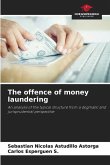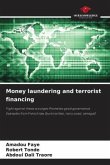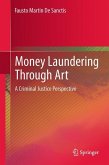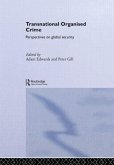This Article sought to investigate whether, despite the autonomy of the criminal type of money laundering and the diversity of legal assets between upstream and downstream crime, its penalty should comply with the penalty of the main predecessor offence to which it relates, considering the general principle of proportionality of penalties in democratic systems of law. For this purpose, the discussion on the legal property of money laundering in control societies was based on the prevailing trend in Western systems. We demonstrate in the course of this work that, in Brazil, the penalty of the crime of money laundering is disproportionate to the previous crime from which it originates, and there is a need for reform of the criminal type by the legislator.
Bitte wählen Sie Ihr Anliegen aus.
Rechnungen
Retourenschein anfordern
Bestellstatus
Storno








